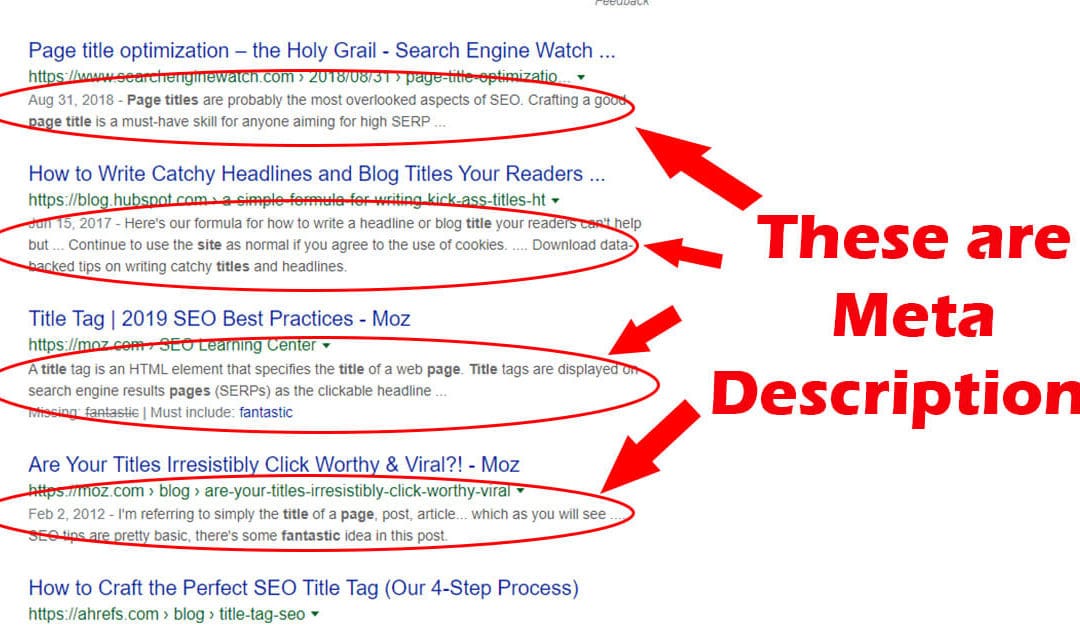Today we’re talking about another somewhat misunderstood meta tag: the description. It’s been a full decade since Matt Cutts, formerly of Google, announced that the meta description and meta keyword tags were no longer factors included in Google’s ranking algorithm. We’ve eliminated the use of keyword tags but still strongly suggest you keep using the meta description tag. Here’s why.
Meta Descriptions Impact CTR, Not SEO
While they don’t affect how well you rank, well-written meta description tags can have a significant positive impact on your site’s clickthrough rates (CTR) from the search engine’s results pages. Think of the description as advertising text. Your title is the headline. Your description reinforces the title’s message and can provide a compelling reason for people to visit your site.
How much of a message can you provide? Long enough to get the message across, but short enough that it’s not truncated by Google. If you see ellipses after your description (. . .), you’ll know it’s been shortened.
We’ve seen variations in Google over the years but the consensus is that between 150~160 characters is safe. To be sure, after you’ve written your description tag, have a look at the page when it’s next indexed by Google. You’ll be able to tell right away whether it’s too long or not.
Another important consideration is to make sure you’re using unique descriptions on each page. In the same way you want to have unique page titles to put your best foot forward with Google, do the same with your descriptions. If you have an e-commerce website with dozens of similar products it can be challenging to create unique descriptions. If that describes you, then make sure the main category pages (also called “aggregation” pages) have unique, compelling descriptions.
One thing to remember: on occasion Google will NOT use your carefully-written description. Sometimes they think they know better than we do. What can you do in this situation?
First, ensure your meta description is not a duplicate of another page’s. Second, make sure the meta description is an accurate description of the content on the page. Third, check the length – if your description is too short or too long, re-write it to be within the 150~160 character range. Check to see if Google changes when your page is re-indexed.
I hope you’ve found this article on meta descriptions useful! Please leave us a comment and share your thoughts! Stay tuned for tomorrow’s on-page SEO tip!


Recent Comments